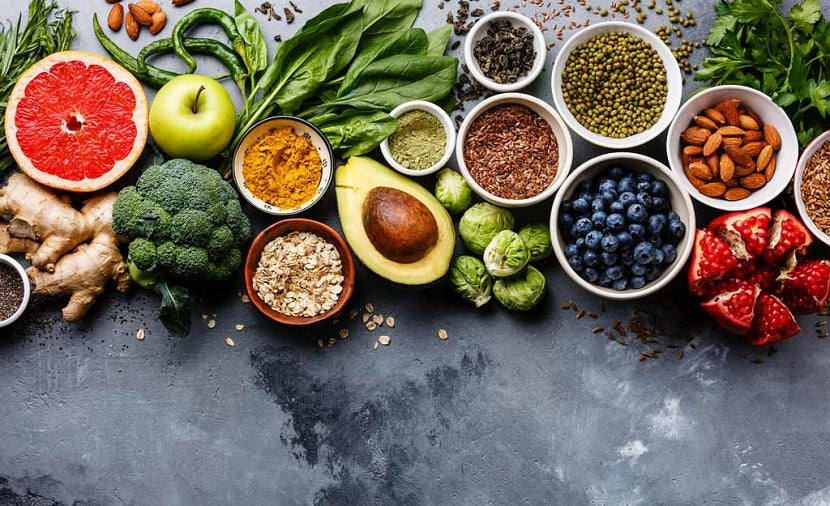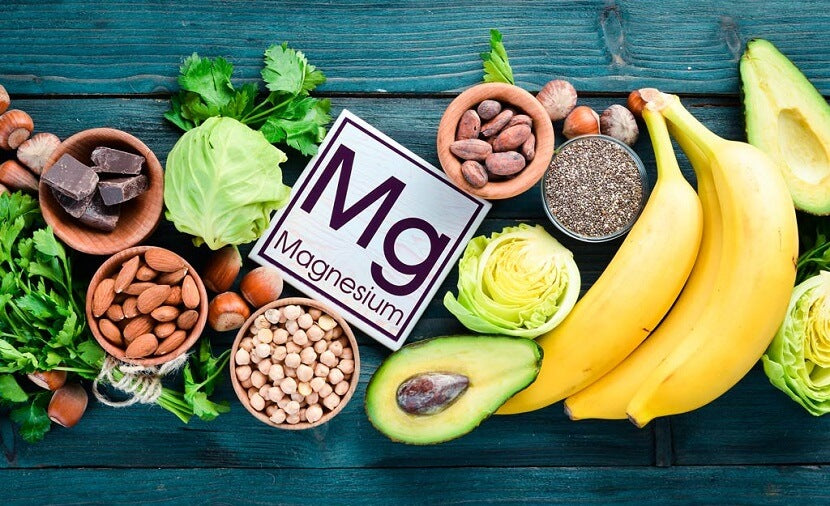Are nutrient deficiencies preventing you from achieving a happy weight?
By Lauren Jane

If you think you’re doing all the right things with your diet and lifestyle – good food in moderation and adequate exercise – but your shape and health are still not improving, you may need to look a little further into your nutritional requirements.
It’s not about restriction or self-deprivation
Have you ever embarked on an unrealistic or very restrictive diet? Are you desperately wanting to lose weight that you began skipping meals thinking this can speed up the weight loss process? Probably you’ve opted to just live on salads to jumpstart weight loss – until you lose all self-control and go on a chocolate binge three days on!
This kind of harmful self-deprivation is far too common and leads not only to short-term macronutrient or micronutrient deficiencies but also puts a lot of strain on our digestive system. What many women often fail to understand is that our body is a perfectly functioning machine and when thrown out of balance with extreme habits, the whole system is negatively affected.
Nutrition is key
Deprivation is NOT the answer to achieving a happy weight. When your body is fed and nourished well, all areas are in balance. In this state, we naturally find and settle at a healthy size because all systems are working harmoniously. Sadly, only a few of us realise this and time and time again we desperately attempt to lose fat mass through calorie restriction alone.
Perhaps you’re someone who truly believes they eat well but still seem to struggle with signs of nutritional deficiency. In this case, the reason may be two-fold. First, it’s possible that you have sub-optimal digestive function and thus are unable to absorb even the freshest organic or seasonal produce. On the other hand, it’s also possible to eat real, fresh food but still miss out on some essentials.
Ask yourself: When you decide on your meals for the day, do you make a conscious effort to include adequate protein, fats, carbohydrates and ferments? If not, it’s possible you’re deficient in nutrients but don't even know.
Testing for nutrient deficiencies
It’s possible to detect that you’re deficient in a particular nutrient, but it isn’t that simple. To make matters worse, routine blood tests from your medical practitioner assess only very few nutrients. To determine if you’re lacking a particular nutrient, specific tests must be requested as some may not be included in a full blood examination (FBE). Moreover, these tests can fail to show how these nutrients are actually being utilised by the body.
Two types of tests are usually conducted in a lab: (1) the measurement of circulating levels of nutrients in the blood or urine and (2) functional tests more commonly ordered by Naturopathic or integrative doctors.
In most cases, the first test can be insufficient. Why? Well, think of thiamine for example, which is a water-soluble nutrient. It can be detected in urine, but the additional measurement of the enzyme transketolase in our red blood cells is actually the more accurate indicator of deficiency severity.
How nutrients play a role in fat burn
Nutrients are the backbone of our physiology. For example, if we aren’t getting adequate B vitamins, magnesium and zinc, then we simply will not have the cofactors needed for our energy pathways. This means we will not be able to effectively use adipose tissue as a source of energy.
In the same way, our mood and energy can plummet if we don’t get adequate vitamin D, iron, magnesium, B vitamins or probiotics. Now tell me, if you’re feeling low or anxious, how likely are you to follow a healthy whole-food diet or wake up to exercise each day?
Another example is protein. Amino-acids, the building blocks of protein, are what boost muscle growth and make our hormones. Without these, how will we effectively fuel our exercise routines, achieve post-workout repair and recovery, or produce blood sugar-regulating hormones? (Chromium and magnesium are also essential in these processes.)
Moreover, we cannot efficiently produce nor convert our thyroid hormones into active forms if we’re deficient in iodine, selenium and zinc. These are just a few examples which affect our vitality and metabolism and, in turn, our ability to maintain a healthy weight.
Take the first step to a happy weight
When we lack certain nutrients, our appetite centres gets turned right up and we ultimately we eat more. Cravings become all-consuming, relentless, and irresistible, especially for nutrient-poor, high-calorie foods.
So what’s the answer to achieving a more healthy weight? It’s actually recognizing that starvation or deprivation is NOT the path to a healthy shape and size. A no-diet approach equates to a satiated body as long as you make the right food choices that deliver the nutrients you need in the right amounts. That way you have a better chance at thriving so you can achieve your ideal weight and body shape. Read more about what a healthy diet entails here.
The best way to be sure you’re getting the right nutrition is by first listening to your body. Is it showing signs of an imbalance?
Our bodies can heal, but need the right environment to do so. Many struggle to create optimal conditions for healthy weight loss. Our latest Happy Healthy YOU guidebook provides a roadmap, outlining essential practices and pitfalls. Integrate positive choices seamlessly into your routine with this practical program to achieve your happy weight!
It also helps a lot to educate yourself on wholesome macronutrient sources. Also, be sure to have enough high-quality fermented foods in your diet every single day. Fermented foods support weight loss and are packed with gut-friendly enzymes that work like natural probiotics. If you’re unsure about fermented foods, learn more about their benefits in this article.
Want to learn more about proper nutrition so you can achieve a happier and healthier weight? We encourage you to join our private Happy Weight Facebook Group where you can ask our team of naturopaths for information and assistance in your weight loss or weight management goals!
REFERENCES
García, O. P., Long, K. Z., & Rosado, J. L. (2009). Impact of micronutrient deficiencies on obesity. Nutrition reviews, 67(10), 559–572.
https://pubmed.ncbi.nlm.nih.gov/19785688/
Kaidar-Person, O., Person, B., Szomstein, S., & Rosenthal, R. J. (2008). Nutritional deficiencies in morbidly obese patients: a new form of malnutrition? Part A: vitamins. Obesity surgery, 18(7), 870–876.
https://pubmed.ncbi.nlm.nih.gov/18465178/
Riaz, M. N., Asif, M., & Ali, R. (2009). Stability of vitamins during extrusion. Critical reviews in food science and nutrition, 49(4), 361–368.
https://pubmed.ncbi.nlm.nih.gov/19234945/
Via M. (2012). The malnutrition of obesity: micronutrient deficiencies that promote diabetes. ISRN endocrinology, 2012, 103472.
https://www.ncbi.nlm.nih.gov/pmc/articles/PMC3313629/








Leave a comment
This site is protected by hCaptcha and the hCaptcha Privacy Policy and Terms of Service apply.